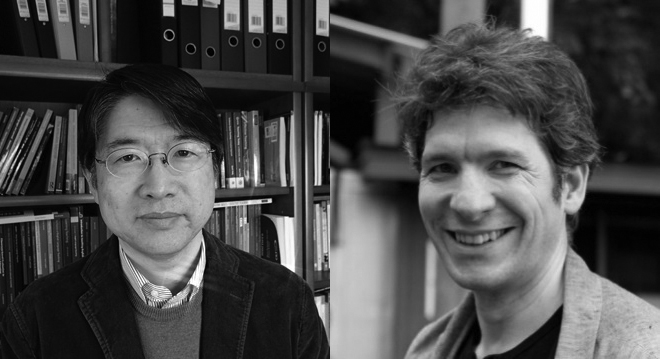JALT CUE Conference
conTENT with teaching CONtent?
Embracing Alternative Methodologies in the Modern Language Classroom
Today a variety of methods have become common to classrooms around Japan and the world. Whether classes involve the use of CLT, CBT, CLIL, ESP, or other methods, each brings with it a different set of challenges and rewards for teachers and students. This conference will encourage participants to explore different teaching methods, exchange thoughts and experiences regarding the use of the different methods, and explore suggestions for how to implement the different methods in a variety of classroom situations. Reports on research related to the various methods to deliver content course material will also be encouraged.
• Perspectives on communicative or content-based English instruction in Japan
• Innovative approaches to CLT, CLIL, CBT, and ESP
• Building support for CLIL or CBT within the university
• The role of ESP in content-based instruction

Laurence Anthony
Affiliation:
Center for English Language Education, Waseda University, Japan.
Honorary Research Fellow, Lancaster University, UK.
Plenary:
Many institutions in Japan and other Asian countries are adopting Content-Based Learning (CBL) courses as an alternative to traditional English language programs. These courses are often taught by non-native subject specialists with little or no training in language teaching. As a result, students struggle to understand not only the new content but also the language in which it is being taught. Alternatively, English teachers may be asked to teach a CBL course, but this leads to the danger of them teaching overly simplistic or potentially inaccurate content material. In this presentation, I will review the core principles of the English for Specific Purposes (ESP) language learning approach and show how adopting these principles in a CBL classroom can help teachers to successfully balance content and language and produce courses that meet the target goals. I will also discuss how ESP and CBL relate to other recent trends in tertiary program development, including English Medium Instruction (EMI) and Content and Language Integrated Learning (CLIL), and discuss the potential impact of all these trends on English language teachers, specialist subject teachers, and the tertiary institutions where they work.
Bio:
Laurence Anthony is Professor of Applied Linguistics at the Faculty of Science and Engineering, Waseda University, Japan. His main interests are in English for Specific Purposes (ESP) program design and teaching methodologies, corpus linguistics, and educational technology. He is head of the ESP section of the JACET awards and publications committee and serves on the editorial boards of various international ESP journals. In 2012, he received the National Prize of the Japan Association for English Corpus Studies (JAECS) for his work on corpus software tools design.
Speaker:
Makoto Ikeda
Affiliation:
Department of English Literature at Sophia University
Plenary:
In this highly globalised information society, English is not just a basic tool to communicate with people from different linguistic backgrounds but an invaluable device to acquire new knowledge, produce original ideas and collaborate with other global citizens. This means it is not sufficient to develop students’ language knowledge and skills in the English classroom; their global (i.e. international and holistic) competencies should also be addressed. Here comes in CLIL (Content and Language Integrated Learning), whose ultimate goal is to nurture learners’ ‘soft skills’. In this talk, I will compare this innovative educational approach with other traditional ELT (English Language Teaching) methodologies, summarises its fundamental and advanced theories (principles and pedagogies), and present examples of both commercially produced and privately designed CLIL teaching materials.
Bio:
Makoto Ikeda is Professor of English Philology and English Language Education at Sophia University. He received his MA from University of London and his PhD from Sophia University. He has published a number of articles and books on CLIL, and guest-edited a special issue of The International CLIL Research Journal focusing on CLIL in Japan. His recent publications include co-authored CLIL: New Challenges in Foreign Language Education at Sophia University, Vol. 3: Lessons and Materials, Sophia University Press (forthcoming).


 Sunday, September 18, 2016 at 12:00PM
Sunday, September 18, 2016 at 12:00PM